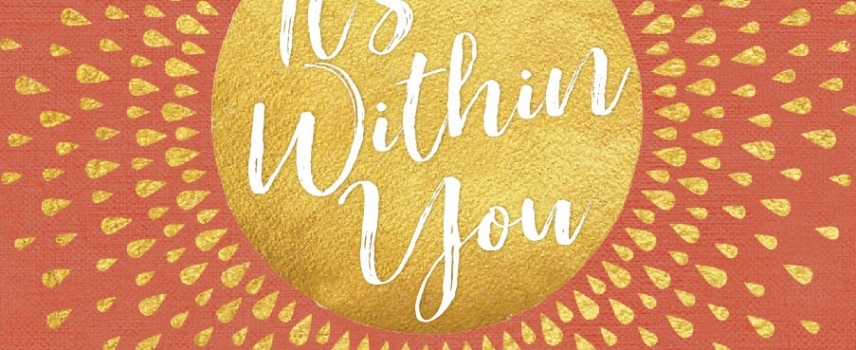INTRODUCTION
Written By: Ilene S. Cohen, Ph.D.
“The keys to liberation are clenched tightly in the fists of our own egos.”
– Tzvi Freedman, Brining Heaven Down to Earth
Pop quiz! What’s the one thing no human on this planet can live without?
If you answered oxygen, you’re correct. We rely on many things for our survival, and the most basic of them is oxygen. You can survive for a few days without water, food, or shelter, but you can’t stay alive for more than a few minutes without oxygen. And it isn’t enough to just breathe oxygen; it has to be clean as well. Yes, we can survive on polluted air, but we pay a hefty price for it in the long run. The absence of clean air to breathe shows up as a significant lack in performance, affecting our focus, energy, and sharpness. It also leads to a variety of illnesses.
While oxygen is necessary for the survival of your physical body, your emotional and spiritual wellbeing relies on what I view as another form of oxygen—something that goes beyond basic survival. It’s the knowledge that you are worthy, invaluable, and indispensable. This knowledge is the oxygen that sustains your mental wellbeing, allowing you to optimize your quality of life. The clearer you are about your inherent value and purpose, the more effectively you can step into your responsibility and fulfill your purpose. Your individual value and worth can never be fulfilled by someone or something else, because they’re part of YOU; they come from your core self, not from outside influences. They come from G-d putting you here for a purpose. This is what makes you inherently worthy. Can there be anything better than realizing your inherent value and no longer needing to seek it from the world around you? We sure don’t think so. For us, that sense of worthiness is priceless.
The less clear we are about our inherent worthiness, the weaker we believe ourselves to be; this affects our determination, resilience, drive, and sense of self. Living with a lack of personal clarity is similar to breathing polluted air. It weakens our performance, affecting our energy and mental clarity. It also creates many forms of emotional pain, discontentment, and loneliness. Sounds pretty detrimental, don’t you think? That’s why we wrote this book: to help you develop a clear understanding so you can start making changes in your life. By taking steps toward change, you can clean your daily intake of oxygen and live in ways that are more congruent with who you’re meant to be. Not only can this help you create a meaningful life, it can also help you cultivate peace, joy, and internal calm.
Seeking Worthiness
There are two essential ways we seek out a sense of worthiness, and the particular path we choose has enormous implications for our quality of life. We either seek worthiness from within, or we seek it from without. When we seek worthiness from within and become aware of our inherent value, we become emotionally and spiritually healthy and strong. Basically, we become unstoppable, only relying on our inherent selves to know who we are and what kind of life we’re meant to live. We become more focused and attuned to our personal purpose and mission. We ultimately become calm and centered creators of our own destiny, living in a world that’s controlled by internal forces rather than external circumstances.
When we seek worthiness from outside ourselves, we depend on the people, things, and circumstances around us to tell us we’re worthy. We become dependent on everything and everyone, hoping they’ll soothe our internal struggle. We worship people, material objects, and financial success like false gods, hoping they’ll provide us with the oxygen we so desperately crave. The great American poet Robert Frost wrote in The Road Not Taken, “Two roads diverged in a wood, and I—I took the one less traveled by, and that has made all the difference.” Which road will you choose?
The Facts
Just as we must have oxygen to survive, we must also have a sense of worthiness; our emotional and spiritual survival depend on it. And just as the quality of the oxygen we breathe directly affects our physical health, so it is with the quality of our spiritual and emotional oxygen. When our worthiness is based on outside sources, our oxygen source is polluted and we tend to feel unhealthy. Relying on external rewards as motivation keeps us beholden to the people around us. When we can find ways to internally derive our worthiness, we feel better about ourselves and are much less likely to strive for meaningless relationships, stay in jobs we hate, or act in ways that don’t reflect who we truly are.
So now that you understand the importance of internal worthiness, what’s next? Well, first you must distinguish where you get your sense of worthiness from. Is it from external rewards, or does it come from within? Do you sometimes feel a sense of worthiness by just being yourself, but other times feel like you’re not enough when surrounded by certain people? Sometimes it’s hard to answer questions like these, and it’s impossible to be objective about them. Nobody can introspect when there’s so much emotion attached to their ideas of themselves. One easy way to assess where our self-worth comes from is to observe our actions, words, and thoughts. I recommend beginning by taking a close look at your actions. Ask yourself, “Is my life spent reacting or responding to others? Do I spend more time answering to the people around me, or am I more intentional with my responses? When I’m part of a group discussion, do I offer my opinion regardless of the outcome, or do I heavily react to others’ opinions?
I once heard a story about a brilliant man. Any time someone would share an opinion with him, he’d argue by giving the opposite viewpoint. They say that when this man died, his soul stood before the A-lmighty, who turned to him and said, “On Earth you were known to be a brilliant intellect. Why don’t you share a brilliant idea with us and show us what you have achieved?” The man responded, “G-d, why don’t you share a brilliant idea, and I’ll refute it?” This short story demonstrates the tragedy of a person who never owns the very place G-d created for them and instead plays it safe by living in reaction instead of responding to life—living with a sense of self-worth from without instead of beginning within.
Getting Started
The following quiz will provide you with a starting point to measure your sense of worthiness and see whether you tend to seek it from within or without. Remember that each and every one of us has a foundation of intrinsic worthiness to build on; so no matter what, you won’t be starting from ground zero.
Maybe you’re starting to wonder whether you’re a worthy person at all. Maybe you’re beginning to think that a lack of internal worth is contributing to—or the reason for—your anxiety, health issues, or inability to maintain successful and satisfying relationships. Or, perhaps, you’ve determined that you gain your worthiness from external resources, but you don’t think it’s something you need to change.
No matter where you are in your personal process, this quiz will help you find out whether your lack of worthiness is a major issue in your life, so you can start making some important changes. You deserve the freedom to make the best choices for you. You deserve to feel worthy. No, you have an obligation to feel worthy. After all, you were gifted by G-d with your life and expected to make the best of it! If the quiz reveals that you’re seeking worthiness from without, this book will offer you some helpful next steps that will change your life.
The quiz has 22 True or False questions that will allow you to assess the status of your self-worth. Read each statement and consider how much it corresponds with how you feel. Your answers should reflect your personal experience. Don’t judge your responses, just answer authentically as you go. Remember, these are True or False questions, so mark a T or F for every response.
1. It’s very important for me to be liked by everyone I meet.
2. I feel uncomfortable around successful and confident people.
3. I’m not a very worthwhile person.
4. I find myself doing more for others, even feeling used at times, so that people will like me.
5. I’m not as valuable as anyone else.
6. The need for approval from others comes before how I feel about myself.
7. I don’t have many unique qualities.
8. I have more unpleasant feelings about myself than I do pleasant ones.
9. Overall, I feel like a failure.
10. I wish I had someone else’s life.
11. Thinking I may have to confront someone makes me feel uneasy, and sometimes I get physically sick over it.
12. It’s very difficult for me to express myself.
13. I don’t like myself when others reject me.
14. I have to give all of myself in order to receive love.
15. I do a lot to try to make others happy, including ignoring my own needs.
16. I’m very sensitive to others’ comments.
17. I should never let people disapprove of my actions.
18. I sometimes feel like love is a transaction, and I’m “buying” my friends by always doing things for them.
19. I’m only as worthy as the amount of money I have in my bank account.
20. I know I do something right when I get praise from others.
21. I do things even if they don’t fall in line with my personal values.
22. I always accept the latest trends.
Scoring Your Answers
So, are you getting your worthiness from within or without? And how is this affecting your life? To find out, generate your total score by counting the number of times you marked True for your answer. Then read the section that corresponds with your score.
• Between 16 and 22: If your score falls in this range, you’re getting your sense of worthiness from without. Living this way significantly affects your ability to live your own life, find your purpose, and have fulfilling relationships. It’s time to start making changes in your life so you can finally feel good enough!
• Between 10 and 15: If your score falls in this range, your sense of worthiness sometimes comes from within and other times from without, depending on the situation. This is enough to affect your life in a negative way. It’s important for you to address this pattern, because it could become worse over time.
• Between 5 and 9: If you fall in this range, you’re probably maintaining some good relationships, and your life hasn’t been significantly affected by feeling a lack of internal worthiness. You have the strength and resilience to know you’re worthy, regardless of your external circumstances. Keep in mind that scoring in this range reveals you still have some tendencies to seek worthiness outside yourself, which could create some downfalls in your life. Keep building on your internal strength in an effort to bring down your score.
• 4 or less: If your score is in this range, you have a strong sense of worthiness that comes from within. However, it wouldn’t hurt to identify when you do seek approval from the outside, so that it doesn’t progress. This is a great time to create more self-awareness and learn some new tools that could spare you trouble down the road.
My Personal Experience
Now, before you get down on yourself about your score, I want to share something personal with you. When I took this quiz just a few years ago, my score was close to 22. So believe me when I say that I know how hard it is to never feel good enough, always doubting yourself and your value. Growing up, I discovered that I had a certain way of dealing with life, which I thought helped guide me through some tough times. I reached for external resources to soothe an internal pain. I continued to engage in the same behavior patterns, thinking I would get the outcome I wanted. I thought if only I worked hard enough, made others happy, and bought enough stuff, then I’d finally feel valuable. But the more I reached for my worth by trying to accomplish external goals, the more I saw that it was like trying to hold sand in a cheese grater or reach a destination on a treadmill. Nothing stuck. Nothing I did got me anywhere good. But instead of changing my strategy, I just kept doing more of the same, believing once I had enough success, friends, and money, I’d finally feel worthy. What I didn’t realize was that my approach needed to be dismantled. More external rewards weren’t the answer; they never were.
I truly believed that by constantly aiming to achieve major accomplishments, I was making everyone—including myself—happy. As time went on, however, I started to realize that this strategy wasn’t working very well at all. As my appetite for more became overwhelming, my drive to find what would truly make me happy grew stronger. I had spent my life constantly giving in and doing things for other people, negotiating things that should have been non-negotiable in my relationships. Living without an internal sense of worthiness held me back in many aspects of my life. I wasn’t able to say no. I felt guilty all the time. I didn’t do things for myself. I strived hard for dreams that weren’t even my own. Eventually, I found myself empty, alone, and endlessly exhausted. My relationships became one-sided; they seemed to work fine for everyone else in my life, but they were no longer working for me. I started to lose myself in my relationships with others and thought that if only I could do a little bit more, I’d feel better about myself. But this didn’t work. In fact, it had the opposite effect.
For years, I tried to find myself by losing myself in my relationships with others, my career, and my endless pursuit of material things. Naturally, it didn’t work. I wound up feeling alone and lost, at a complete standstill in my life. Although I knew the way I was living wasn’t working, I still had a strong urge to work harder and do more. I thought maybe I just hadn’t reached the point of true success and happiness yet. The truth is, my sense of self-worth wasn’t very strong. I looked confident and successful on the outside, but on the inside, I was my worst critic. I felt lost and worthless. Accomplishing big goals made me feel euphoric at first; but after the high wore off, I realized I still wasn’t satisfied. I never felt complete. I thought, if only I could get better at what I was doing, I would finally feel good enough.
At first, I wrongly thought that if other people in my life would change—if they would only just appreciate me—then I could finally feel worthy. I also used to tell myself that all my troubles would melt away once I found the perfect relationship. What I didn’t realize is that I wasn’t going to find the type of relationships I wanted unless I started to discover my inherent value, independent of others.
Constantly falling into the trap of never feeling worthy, I eventually started to wonder if accomplishing my big dreams would ever truly make me happy. Would I ever find a way to feel complete and content? Exploring this question marked the first step of my journey. Through my own process of self-discovery, I went from being a person with the self-esteem of a dish rag to someone self-accepting and aware of her worth. More than anything, I want the same for you. Living the way I used to live was like eating five plates of food at a buffet but still wanting more. Never feeling fully satisfied and always seeking external indulgences to feel internally worthy is no way to live.
How It All Begin
One of the richest stories in the Bible is that of Adam and Eve, narrated in the book of Genesis. By eating from the forbidden fruit of the Tree of Knowledge, Adam and Eve acquire the awareness of good and evil and are then expelled from the Garden of Eden. Before they ate the forbidden fruit, they were transparent in their relationship with G-d; their egos didn’t block their awareness of the purpose of creation. Even those things they did for themselves—as we all must—were not about themselves, but about their purpose. The moment they acted according to their own personal desires rather than their purpose, they became confused by self-consciousness and were no longer transparent. Suddenly, another agenda entered the picture: an absorption with self. This led them to disconnect from their relationship with G-d.
Before they ate fruit from the Tree of Knowledge, Adam and Eve “were both naked, and were not ashamed” (Genesis, 2:25). Although they were aware of their own nakedness before they ate the fruit, it didn’t cause them shame. This was because their entire being was dedicated to their purpose of creation. Only after they ate the forbidden fruit, after acting purely for self, did they experience a lack of integrity and transparency. Now, they experienced everything through two lenses: an authentic one and a self-oriented one. Bias and self-orientation took away their integrity. They became self-conscious about their bodies, no longer seeing them as transparent tools for a purpose. Now they represented a pursuit of selfish indulgence.
The serpent tells Eve: “When you eat of [the fruit of the Tree of Knowledge] your eyes will be opened” (Genesis, 3:5). Of course, Eve’s eyes were technically already open. She wasn’t physically blind; she was already aware of her nakedness. Her eyes became open to self-consciousness. This awareness of self-altered and confused Adam and Eve’s very understanding, dissolving the boundaries between themselves and their purpose. Working through this confusion to the best of our ability is what this book is all about. We all have a transparent, authentic self and a self-oriented, indulgent self. When we take a moment to stand outside these two selves and learn to differentiate between them, we can experience liberation.
Have you ever felt, upon learning new information or arriving at a new insight, that you’ve somehow known it all along? This is a common experience which shows that certain knowledge lies hidden in the cracks of awareness, even though we aren’t self-reflectively aware of it. Then, when an event triggers an idea into our awareness, we suddenly become open to the fact that we were conscious of the knowledge all along. This is how it goes when we become aware of our worth. It isn’t something we find or seek out; it’s something we discover that we had all along.
During the Renaissance, Europeans became aware of the three-dimensional perspective. Some authors refer to this development as the discovery of perspective. Well, it obviously wasn’t the creation of perspective. Every sight-capable human being has had visual perspective since the dawn of the species. But in this 15th Century discovery, European artists became aware, for the first time, that they were conscious of perspective. Three-dimensional perspective wasn’t new in consciousness, but in the field of self-awareness. After it entered this field, it was recognized as something people had always known, but hadn’t known they’d known.
It’s critical for ordinary human thinking that we not only know something, but be aware that we know it as well. There’s a difference between knowledge and self-awareness of knowledge or, in other words, knowing that we know something. The way we rectify the fundamental human challenge, the confusion created by the fruit of the Tree of Knowledge, is by learning to know what we experience, to become self-aware. It allows us to recognize ourselves through our experiences and to think about our own thoughts, feelings, and sensations.
There’s a great deal of good that comes from self-knowledge, awareness, and reflection. It gives us a chance to realize the fullness of human potential and fulfill its role in the scheme of things. The human intellect has the unique ability to stand outside its own thoughts, as it’s capable of thinking about its own thoughts. We, humans, can also stand outside our emotions by pondering those emotions. We can even stand outside ourselves by contemplating our place in the world as if we were looking at ourselves from the outside. This capacity is what we call self-reflective awareness, and it’s for making sense of nature. Without it, we’d be completely immersed in our instincts, unable to understand our actions and sense of worth. Only through self- awareness can we think objectively and consciously live our lives from a place of value. Our capacity for self-awareness is nature’s only chance of solving the mystery of life. Think about this for a moment: without our capacity for self-reflection, we would stand no chance of understanding ourselves; we would never be able to rise above our own instinctive reactions.
Great suffering and confusion came to us when we gained a sense of ourselves. This issue is at the core of our success and failure. It determines whether we’re self-centered or purpose-oriented. The confusion exists in the relationship between ourselves and the world around us. We have a remarkable ability to invest fully in something other than ourselves, knowing that we can be self-reflective while remaining connected to everything around us. The conflict lies in making a choice between living consumed in our awareness of self or totally immersed in our relationships with others.
Successful athletes at their peak performance talk about losing a sense of themselves when they’re engrossed in their sport. Can you think of a time when you were so focused on what you were doing that you lost a sense of everything around you? A time when you transcended what you were doing so that nothing else existed outside the present moment? That must have been what living in the Garden was like. Now, the tricky thing is that some of us can get so focused on and consumed with ourselves that we disconnect completely from the present moment. Part of our dilemma is finding a balance between focusing on ourselves and focusing on our connection to everything else. We don’t want to focus so much on ourselves that we lose sight of others; but we don’t want to be so focused outside ourselves that we lose a sense of ourselves either. Finding the path to ensuring our focus on ourselves isn’t about ourselves but rather about our purpose.
Throughout this book, we’ll be posing many questions to you. We’ve crafted these questions so you can work through the confusion that came to us when we developed a sense of ourselves. Working through this confusion allowed us to become more self-aware and knowledgeable of our worthiness, while remaining connected to those around us. We created this book to offer the same opportunity to you.
Our fundamental challenge as humans is to differentiate between objective and subjective reality. When we become aware of ourselves, we develop the natural drive to personalize everything. The success of our happiness develops when we form a strong sense of worth that allows us to go beyond self. Musicians whose fingers play on their own can only master losing their sense of self once they’ve fully immersed themselves in the hardships of learning a new instrument.
This book is a guide to mastering your sense of self and self-worth, so you can connect with others and the world around you in a different way. The paradox is that once we become more self-aware, strong in our knowledge of self, we can minimize our desire to personalize and make everything about self. Only then can we find our way back to the Garden of Eden, connected to everything around us.





